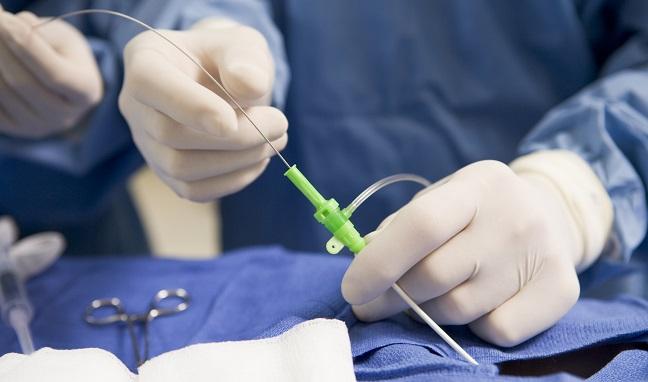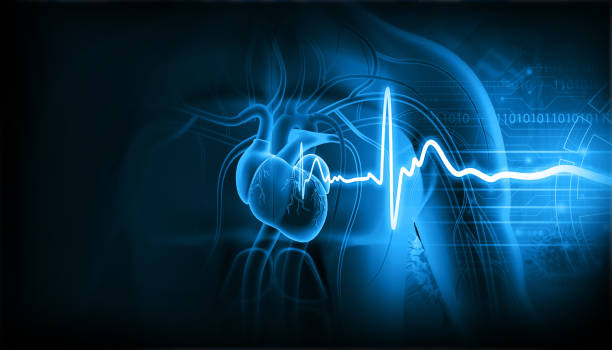Recognizing the Relevance of Cardiology in Modern Health Care Services
Cardiology plays an important function in contemporary health care, particularly as heart problem remains to be the leading reason for death worldwide. Breakthroughs in diagnostics and therapy have actually changed client care, making it possible for earlier interventions and improved results. Additionally, the change in the direction of precautionary cardiology empowers people to manage their health proactively. As technology remains to progress, the assimilation of cutting-edge solutions might better redefine cardiology's effect on public health and wellness, motivating a better assessment of emerging fads and their effects.
The Prevalence of Heart Problem and Its Effect on Public Health
Heart condition remains the leading cause of fatality around the world, its impact extends far beyond specific people to influence public health and wellness systems and economic climates. The high occurrence of cardiovascular disease places a substantial stress on health care sources, necessitating boosted funding for rehab, treatment, and prevention programs. Public health efforts need to deal with threat aspects such as excessive weight, smoking, and inactive lifestyles, which add significantly to the rising occurrence of heart conditions.Moreover, the financial worry linked with cardiovascular disease is immense, encompassing not only direct medical costs but also indirect expenditures connected to lost efficiency and early mortality. Areas face difficulties in taking care of these prices, commonly leading to variations in healthcare accessibility and outcomes. As the populace ages and lifestyle-related dangers remain to escalate, the seriousness for efficient cardiology treatments ends up being vital. As a result, resolving cardiovascular disease is not only a matter of specific wellness yet also an important public health concern.
Breakthroughs in Cardiac Diagnostics and Imaging Techniques
Recent innovations in heart diagnostics and imaging methods have reinvented the area of cardiology, enhancing the capacity to monitor and detect heart problem. Methods such as heart MRI, CT angiography, and echocardiography have come to be progressively innovative, providing detailed photos of cardiac frameworks and features. These techniques permit the very early recognition of problems like coronary artery condition, heart failure, and valvular disorders.Moreover, improvements in non-invasive diagnostics, such as wearable technology and remote tracking tools, have actually equipped individuals and medical care companies. These devices assist in real-time tracking of heart rhythms and other vital signs, resulting in prompt interventions. Additionally, synthetic knowledge is being integrated right into imaging analysis, improving precision and efficiency in medical diagnosis.
Advancements in Treatment Choices for Heart Conditions
Recent improvements in cardiology have actually caused significant developments in therapy options for heart problems. These consist of advanced medical strategies that improve procedural end results and arising medications that offer brand-new methods for therapy. As the area progresses, these technologies play a vital role in boosting client treatment and outcomes.
Advanced Surgical Techniques
Developments in medical strategies have actually changed the landscape of cardiology, supplying brand-new hope for patients with heart conditions. Minimally intrusive treatments, such as catheter-based interventions, have actually greatly decreased recovery times and medical facility stays. Strategies like robotic-assisted surgical procedure enhance accuracy, allowing surgeons to browse complex physiological structures with greater accuracy. Innovations in imaging innovation help with real-time visualization throughout procedures, boosting outcomes. Transcatheter aortic valve substitute (TAVR) exhibits an innovation in treating aortic stenosis, enabling valve substitute without open-heart surgery. Furthermore, hybrid approaches that integrate catheter-based and surgical approaches provide customized options for various cardiac concerns. These advanced surgical strategies not only enhance patient safety however additionally increase therapy alternatives, underscoring the vital duty of advancement in modern-day cardiology techniques.
Arising Medications and Therapies
As the landscape of cardiology remains to develop, emerging therapies and medicines play a pivotal function in enhancing therapy alternatives for heart conditions. Advancements such as unique anticoagulants and progressed lipid-lowering representatives have transformed the management of heart diseases, substantially reducing person morbidity and mortality. Furthermore, the development of genetics therapies and regenerative medicine uses encouraging methods for treating conditions previously regarded incurable. Medical tests are continuously disclosing the effectiveness of these treatments, pressing the boundaries of traditional treatments. Furthermore, the combination of digital health and wellness modern technologies assists in tailored medicine, enabling customized treatment strategies based upon genetic and way of life variables. Jointly, these advancements highlight the dynamic nature of cardiology, enhancing client results and redefining standards of treatment in modern health care.
The Role of Preventive Cardiology in Individual Care
Precautionary cardiology plays a crucial function in person care by concentrating on the identification of risk elements that add to cardiovascular disease. With way of life adjustment strategies and very early detection techniques, doctor can effectively lower the occurrence of cardiovascular events - Cardiology Jupiter. This positive approach not just improves client end results yet likewise promotes long-term wellness
Risk Aspect Identification
While cardiovascular diseases stay a leading root cause of morbidity and mortality worldwide, effective threat variable recognition acts as a foundation of preventive cardiology. Determining threat elements such as hypertension, hyperlipidemia, household, and diabetes mellitus history is necessary for very early treatment. Healthcare professionals utilize different evaluating approaches to evaluate these elements, enabling customized preventative measures. In addition, recognizing an individual's lifestyle choices, such as smoking and physical inactivity, additionally notifies threat evaluations. This comprehensive evaluation enables medical professionals to develop tailored care strategies focused on mitigating threats. By focusing on threat variable recognition, medical care systems can boost client results and lower the total concern of heart diseases, eventually adding to enhanced public health and wellness methods and resource allocation.
Way Of Living Alteration Strategies
A multitude of research studies highlights the important duty of way of life alteration methods in decreasing heart disease risk. These approaches include dietary changes, enhanced exercise, cigarette smoking cessation, and weight monitoring. By adopting a heart-healthy diet rich in fruits, vegetables, whole grains, and lean healthy proteins, people can lower cholesterol levels and high blood pressure. Regular exercise reinforces the heart and boosts total cardio health. Additionally, giving up smoking significantly lowers the threat of cardiovascular disease and improves recovery rates for those with existing problems. Weight administration better adds to cardiovascular health and wellness by minimizing various other danger factors such as diabetes mellitus and hypertension. Carrying out Website these way of living changes not just promotes specific well-being however also works as a cornerstone of precautionary cardiology in person care.
Early Discovery Techniques
Lifestyle adjustments greatly contribute to decreasing cardiovascular disease threats, yet they are most effective when coupled with early detection methods. Precautionary cardiology stresses the value of identifying potential heart problems before they intensify right into major conditions. Strategies such as high blood pressure tracking, cholesterol testing, and advanced imaging modern technologies like echocardiograms play crucial functions in reviewing cardiovascular health and wellness. Biomarkers and genetic testing additionally boost the precision of very early discovery, enabling customized preventive strategies. Regular cardiac danger examinations equip health care carriers to step in proactively, potentially stopping cardiovascular disease and strokes (Cardiology). By incorporating these early detection techniques into routine care, people can take advantage of timely way of living interventions and targeted therapies, ultimately boosting results and enhancing quality of life
Integrating Modern Technology Into Cardiology Practices
As improvements in modern technology continue to improve different areas, the combination of cutting-edge tools and systems right into cardiology practices has actually ended up being vital for improving client treatment and results. Telemedicine systems allow cardiologists to keep track of people from another location, enhancing accessibility to care while decreasing the problem on medical care centers. Wearable gadgets, such as smartwatches, make it possible for continual heart price monitoring, notifying both doctors and clients to prospective problems in real-time. Furthermore, expert system (AI) is being utilized to assess huge amounts of cardiac data, aiding in very early diagnosis article and tailored treatment plans. Advanced imaging methods, including 3D echocardiography, boost visualization of heart structures, bring about extra exact treatments. Electronic health and wellness documents (EHRs) enhance client details management, making certain that cardiologists have instant access to critical data. Together, these technological innovations are transforming cardiology, promoting positive monitoring and improved health and wellness outcomes for people with cardiovascular problems.
The Value of Client Education and Engagement
Patient education and learning and involvement play a critical role in the management of cardio wellness. By furnishing clients with understanding about their conditions, therapy options, and way of living modifications, healthcare providers encourage individuals to take an energetic duty in their care. This positive technique can cause enhanced adherence to recommended get more medications, nutritional modifications, and exercise routines, ultimately reducing the danger of complications.Engagement additionally fosters a solid patient-provider relationship, motivating open interaction and trust. When patients feel informed and entailed, they are much more most likely to voice worries and ask concerns, which can lead to far better clinical outcomes. In addition, instructional resources, such as workshops or digital platforms, can improve understanding and advertise self-management approaches. Overall, prioritizing client education and involvement is necessary for improving cardiovascular health, boosting high quality of life, and minimizing healthcare costs connected with cardio diseases.
Future Patterns in Cardiology and Their Potential Impact

Frequently Asked Questions
What Lifestyle Changes Can Reduce Cardiovascular Disease Danger?
The current question addresses way of life modifications that can considerably lower heart problem risk. Cardiology Jupiter. Taking on a balanced diet, participating in regular physical activity, keeping a healthy and balanced weight, handling tension, and preventing tobacco can especially enhance cardio health and wellness
How Can I Identify Very Early Indicators of Heart Problems?
Acknowledging very early indicators of heart problems entails monitoring signs and symptoms such as upper body discomfort, shortness of breath, exhaustion, and uneven heartbeat. Timely recognition of these signs can trigger essential medical evaluation and treatment for much better results.
What Are the Distinctions Between Cardiologists and Heart Surgeons?
The distinctions in between cardiologists and heart doctors hinge on their roles; cardiologists mainly handle and diagnose heart disease via non-invasive methods, while cardiac doctors execute operations to remedy architectural heart problems. Each plays a crucial, distinct role.

How Commonly Should I Obtain My Heart Health Checked?
The regularity of heart health checks varies based on private risk aspects. Usually, grownups should undergo evaluations every one to two years, while those with status quo may need more constant evaluations as recommended by health care professionals.
What Duty Does Genetics Play in Heart Problem Threat?
Genes significantly affects heart problem risk, with familial patterns showing acquired conditions. Particular genes can incline individuals to hypertension, cholesterol concerns, and various other cardiovascular issues, highlighting the significance of hereditary screening in reviewing heart health and wellness. Heart disease continues to be the leading cause of fatality worldwide, its impact prolongs far past specific people to influence public health systems and economies. Public health and wellness initiatives should address risk aspects such as obesity, cigarette smoking, and sedentary way of lives, which add substantially to the rising occurrence of heart conditions.Moreover, the financial burden connected with heart illness is tremendous, encompassing not only direct medical prices yet also indirect costs connected to lost performance and premature mortality. Preventive cardiology plays a necessary duty in patient care by concentrating on the identification of risk factors that contribute to heart disease. Artificial knowledge (AI) and maker discovering are improving diagnostics and individual surveillance, making it possible for very early detection of heart diseases. The distinctions in between cardiologists and cardiac specialists exist in their roles; cardiologists mainly detect and take care of heart conditions through non-invasive methods, while cardiac specialists carry out surgical treatments to correct structural heart issues.